Every week or so I will combine some of my favorite posts I made through out the week just incase you missed them they will be in one place, each will be named differently and I will use 2-4 bots to boost it.
For this past couple of weeks I have been focusing on some of my favorite topics, AI and Dystopian futures, Please read below to understand more.
Go get some coffee so you can enjoy this museum of work, you might learn something new.

Innovation - Avoiding a Dystopia
For years, innovators have valued disruption above all other things. Their sentiment could be summed up in the phrase, "move fast break things." Break things they did. Facebook has come under fire for letting foreign actors manipulate public opinion, allowing bad actors such as Cambridge Analytica get their hands on millions of users' data and even helping people organize massacres. Youtube has come under fire for allowing the spread of conspiracy theories, Uber has come under fire for breaking regulations and creating a toxic work culture.
As the Media turns against technology companies, as regulators start flexing their muscles, and as cries of anti-trust action become audible, it seems like the age of disruption for its own sake might be at en end. Innovation is not going anywhere, but if future innovators want to avoid backlashes, they should first think about the potential consequences of the change they're creating.
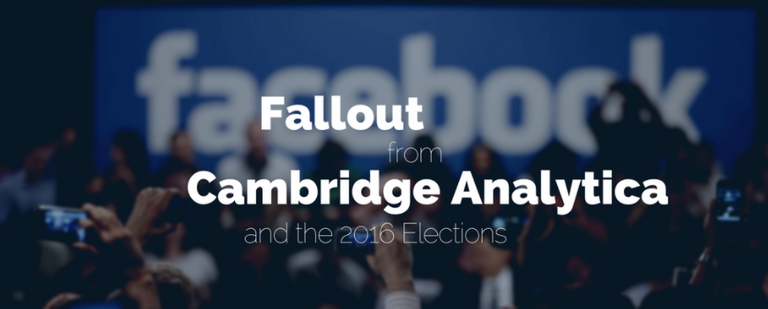
Read a bit I wrote on Innovation Game - Outflank your competitors
To get some more information on the innovation game of our era.
If future innovators, entrepreneurs, and even startups want to avoid backlash, they should try to think more like dystopian science fiction writers, such as one of my favorites Charlie Brooker, the writer behind the popular techno-dystopian TV show Black Mirror. They should try to imagine the potential adverse effects of their innovations, and plan ways to mitigate them before the blowback hurts their businesses or even our own world.
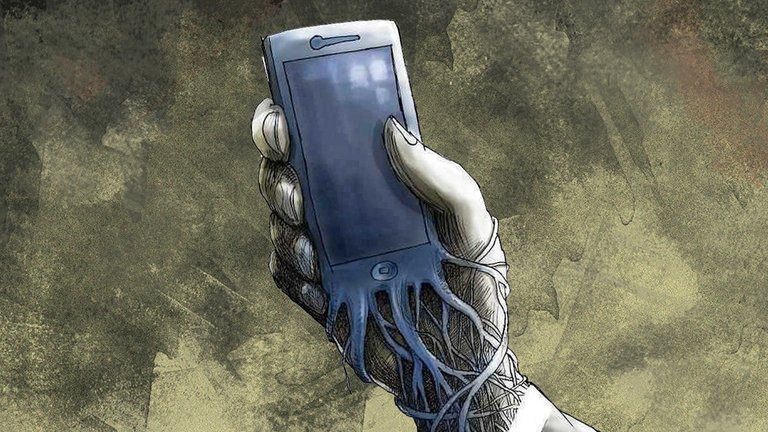
We do not want a world like Altered carbon or mute.
Although the show Black Mirror focuses primarily on how technology could create dystopian stories, Brooker has said "that the humans who use technology cause the problems, not the technology itself."
Please have a look out for a post on the Black Mirror Effect
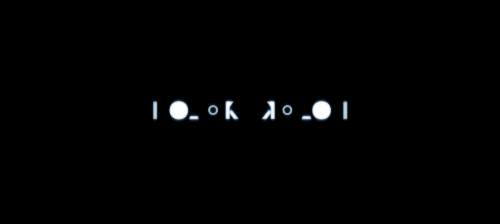
A Fascinating Dystopian Look at a Possible Future of Child Laws
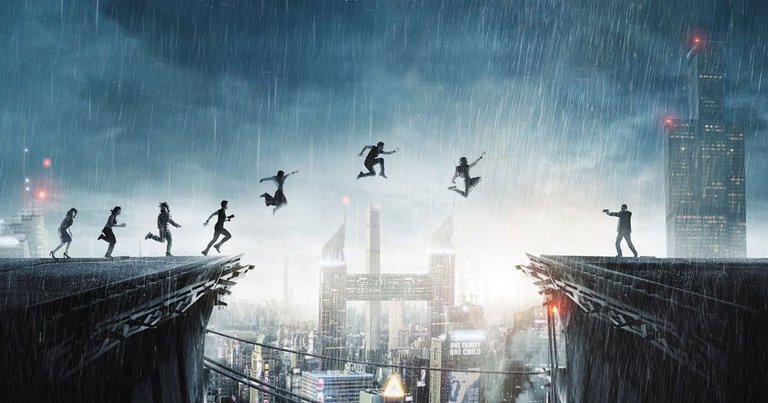
It is the year 2073, the earth is dangerously overpopulated so much so that a global crisis ensues. The population bomb that had been ticking for more than a century has finally exploded, and the results are devastating on a global scale.
Even more troubling, however are the implications of the population crisis on ordinary families. In response to the over population issue, the government has instituted a strict one child policy for all families, much like the 100 (show), a law that is enforced by the much-feared Child Allocation Bureau.
The implications of the one child policy are brought into stark relief when a set of septuplets are born. While the mother dies giving birth, all seven babies survive, creating a real crisis for the government and the family.
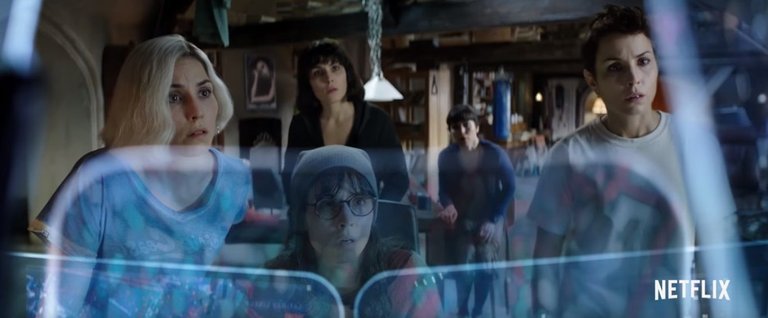
In What Happened to Monday, a government agency known by the name of The Child Allocation Bureau enforces a strict law forbidding families from having more than one child, due to the worlds overpopulation at crisis level. Those who break the law are forced to surrender all but their eldest child, and the rest are placed in cryogenic sleep until some future date when earth can once again sustain more humans.
The Septuplets have spent all their lives hidden away and assuming the identity of one woman, only allowed outside their apartment on the day of the week that's each of the girls namesake. The film calls into question the need for population control due to the earth's limited resources, and it also causes the audience to think about how far the law should go into enforcing it.
The bloody end of the movie only suggests that despite the noble intentions, in the beginning, this type of population control would bring added struggle and loss of life.
There is no such thing as a "Blockchain" part 2
There are over hundreds of completely separate blockchains and more on the way
No two are exactly alike!
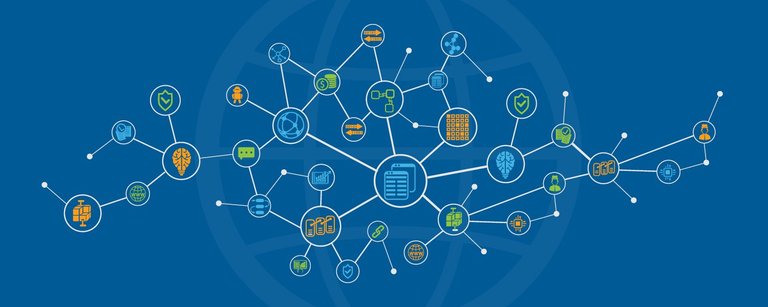
The key to differentiation is method of validation
Proof-of-Work | Proof-of-Stake | Proof-of-Space | Byzantine Agreement | Proof-of-Brain
Beyond Bitcoin,
The most important piece is the blockchains that form it.
If you genuinely want to understand the Bitcoin phenomenon, you need to take a look at the underlying technology. The thing that makes not only Bitcoin but Ethereum, Litecoin and other cryptocurrencies so intriguing is the blockchain on which they are built. Whether Bitcoin eventually reaches a million dollars or crashes and burns, the underlying blockchain technology is unlikely to go away. Instead, the blockchain is likely to find its way into banking, retail transactions, and even the ballot box.
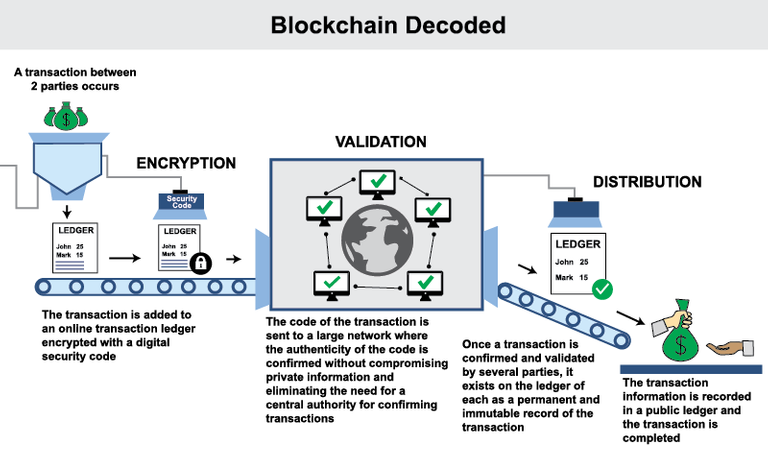
At the heart of any true cryptocurrency revolution are the blockchains associated with each said crypto, a distributed ledger that can be shared, replicated and synchronized among many different users. Unlike a traditional banking transaction, which is centralized and stored in a single location, cryptocurrency transactions are stored on vast networks of computers.
The distributed nature of any blockchain ledger makes it uniquely resistant to hacking and other types of tampering. While hacking a single-point transaction requires nothing more than access to a centralized computer, hacking a distributed ledger as the one Bitcoin uses is far more challenging. Even if the bad folk gain access to a dozen computers on the network, there are thousands more holding replicas of the authentic blockchain. AI knowledge surrounds the blockchain fortress.
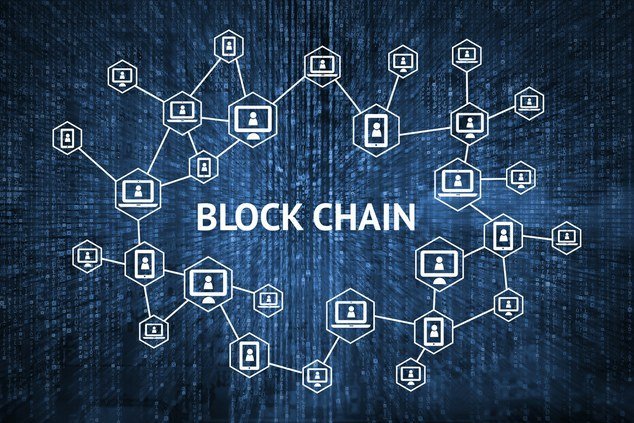
Deadly Threat to Humanity from Artificial Intelligence (AI) - History Warns us.
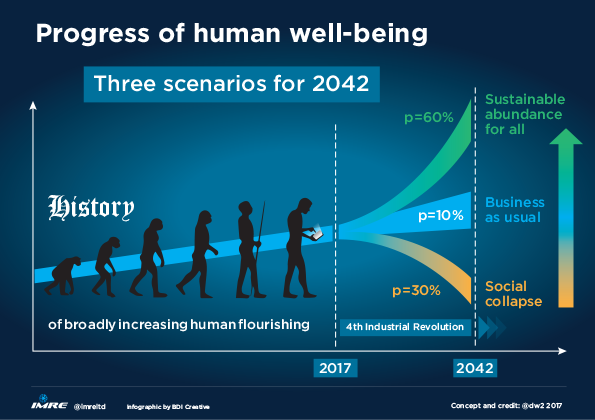
An article published in Nature Magazine in autumn of last year 2017 makes for an interesting reading. It reports on research carried out by Washington State University and Arizona State University, from which it shows that the wealth disparity in human societies was insignificant until the development of agriculture. That occurred in different parts of the world around 13,000 years ago. What happened next should be a warning to humans in the age of artificial intelligence.
Land cultivation started when groups of nomads stayed in one location probably due to illness, injury, bad weather, or fear of other tribes. A few individuals experimented with seeds and plants and discovered that they could grow edible crops in dedicated plots and repeat the process each year. That reduced their need to constantly hunt, fish and search for wild fruit and vegetables. Some grabbed more land than others and become the wealthiest of the group. The wealth gap increased even more, when some people learned how to tame large animals like oxen and horses and used them to till larger areas and, in the case of course. more effectively fight adversaries and , so, acquire more land.
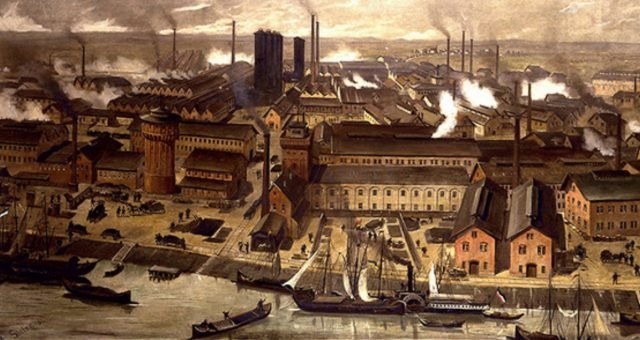
Having the latest and most powerful technology- in the broadest sense of the word - has always meant riches and power. The industrial revolution, which replaced much animal and human sweat with steam power, made the owners the steam engines and factories very wealthy, Today's technological equivalent of oxen, horse, and steam engines are computer systems and, just as in the days of the early humans, those who control that new technology are among the richest. Technology itself, however, may soon upend that age-old equivalence.
Many respected experts predict that the processing power of computers will surpass that if humans with in the next fews decades. Some of those experts, including Tesla and SpaceX CEO , Elon Musk, and theoretical physicist, Stephen Hacking, worry that artificial intelligence (AI) machines will eventually become conscious i.e. gain self-awareness, will be smarter than humans, and continue to get smarter quickly. These ultra-smart machines, the experts warn, will pose an existential threat to humanity because humans will not know what they're thinking and so won't be able to control them. Of course nobody knows for sure that this will happen and if it does, precisely when, but the expert warnings are credible enough to be taken seriously.

Scientist call the hypothetical moment in time when machines become conscience as the "Singularity." If that moment arrives, the experts suggest a number of possible scenarios. The most benign is at the machines will work for the benefit of the human creators and that there would be no reason for them to harm humans. Yet how could anyone be sure that, that would be the case, since humans were not know what the machines are thinking? Even today, computer scientists don't fully understand why complex computers make some of the decisions they make.
Autonomous machines that can harm humans already exist. Drones without a human controller can be programmed to locate and attack targets. Some scientists argue that if machines become conscience, they are likely to regard humans as unnecessary and inefficient and eliminate them.
Elon Musk, among others, suggest that the only way to match these super intelligent machines is to augment human intelligence by joining human brains to the machines. In that science-fiction scenario though, the human race will become a race of cyborgs. Since cyborgs' machine elements will doubtlessly evolve quicker than the biological elements, humans will gradually, but effectively turn into machines. That suggests that Elon musk's proposal is not really a solution at all and that the machines will eventually take over one way or another.
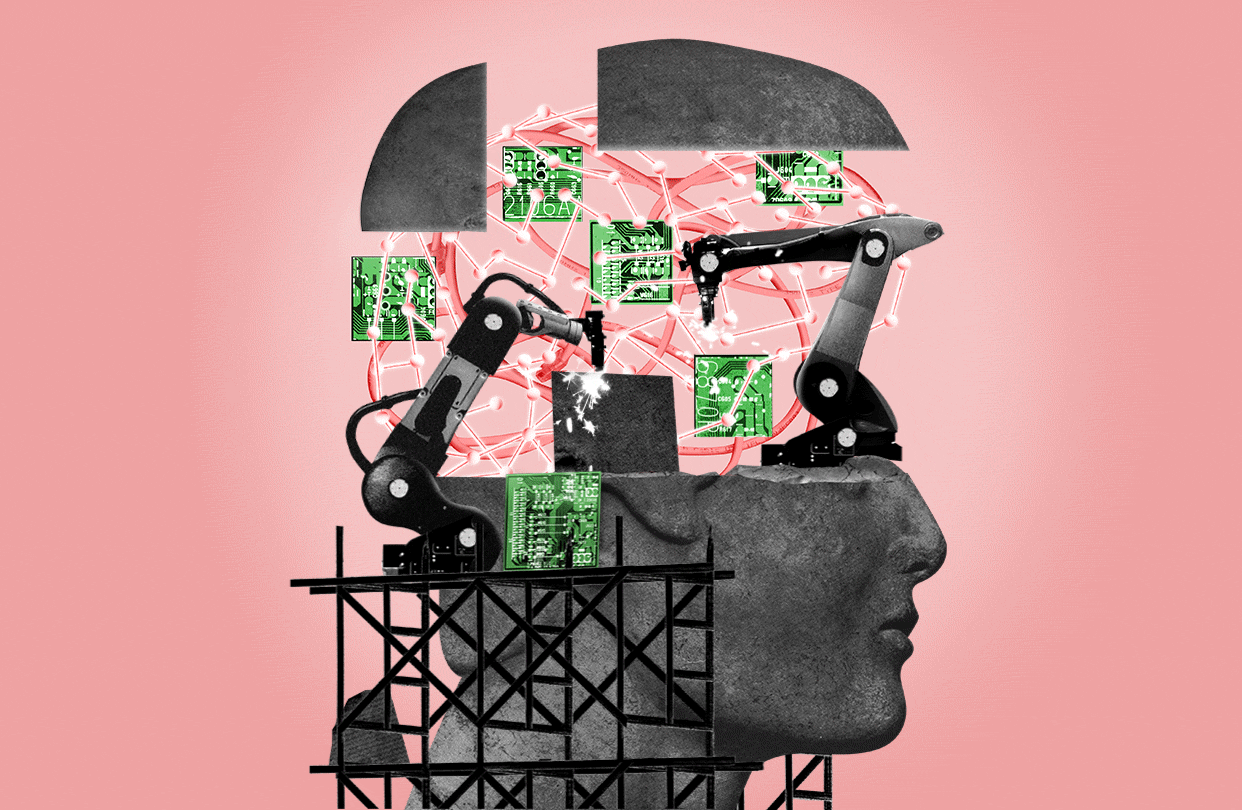
Thanks to AI, (artificial intelligence) the rich will get richer until, ironically, humans lose control of their technology they invented. That's unlikely to happen anytime soon, but if it could happen sooner than most people think. What it does, for the first time in human history, being very wealthy will count for very little.Our ability to process information and data is becoming drastically increasingly very efficient are processing computers are becoming much faster much smaller and are able to process information faster than our own brains can process, so keep this in mind technology is great and all but we as humans need to understand that this new technology if not controlled correctly will have drastic effects on our own human race.
All good writing is swimming under water and holding your breath.
Ilike the post .your article is so good .thank for sharing.
You got a 38.97% upvote from @postpromoter courtesy of @chronocrypto!
Want to promote your posts too? Check out the Steem Bot Tracker website for more info. If you would like to support the development of @postpromoter and the bot tracker please vote for @yabapmatt for witness!
upvoted me plz
Oh man....that is some chronic spamming.
I think humans have a lot to fear from overpopulation and will pose a real threat in the future. As for AI, I don't think the fear is justified. I love your imagination and your insights
i love to read this article ☺☺
WARNING - The message you received from @emiliosilveira is a CONFIRMED SCAM!
DO NOT FOLLOW any instruction and DO NOT CLICK on any link in the comment!
For more information, read this post: https://steemit.com/steemit/@arcange/phishing-site-reported-steemiv
Please consider to upvote this warning or to vote for my witness if you find my work to protect you and the community valuable. Your support is really appreciated!
Congratulations @chronocrypto! You have completed some achievement on Steemit and have been rewarded with new badge(s) :
Click on any badge to view your own Board of Honor on SteemitBoard.
To support your work, I also upvoted your post!
For more information about SteemitBoard, click here
If you no longer want to receive notifications, reply to this comment with the word
STOPEnjoyed reading this... Glad to be following your blog. Cheers
Have you read The Feed? I loved it... a really good book about digital dependence ... its post apocalyptic, examines link bw humanity and machine..and corporations benefitting from it at expense of earth....